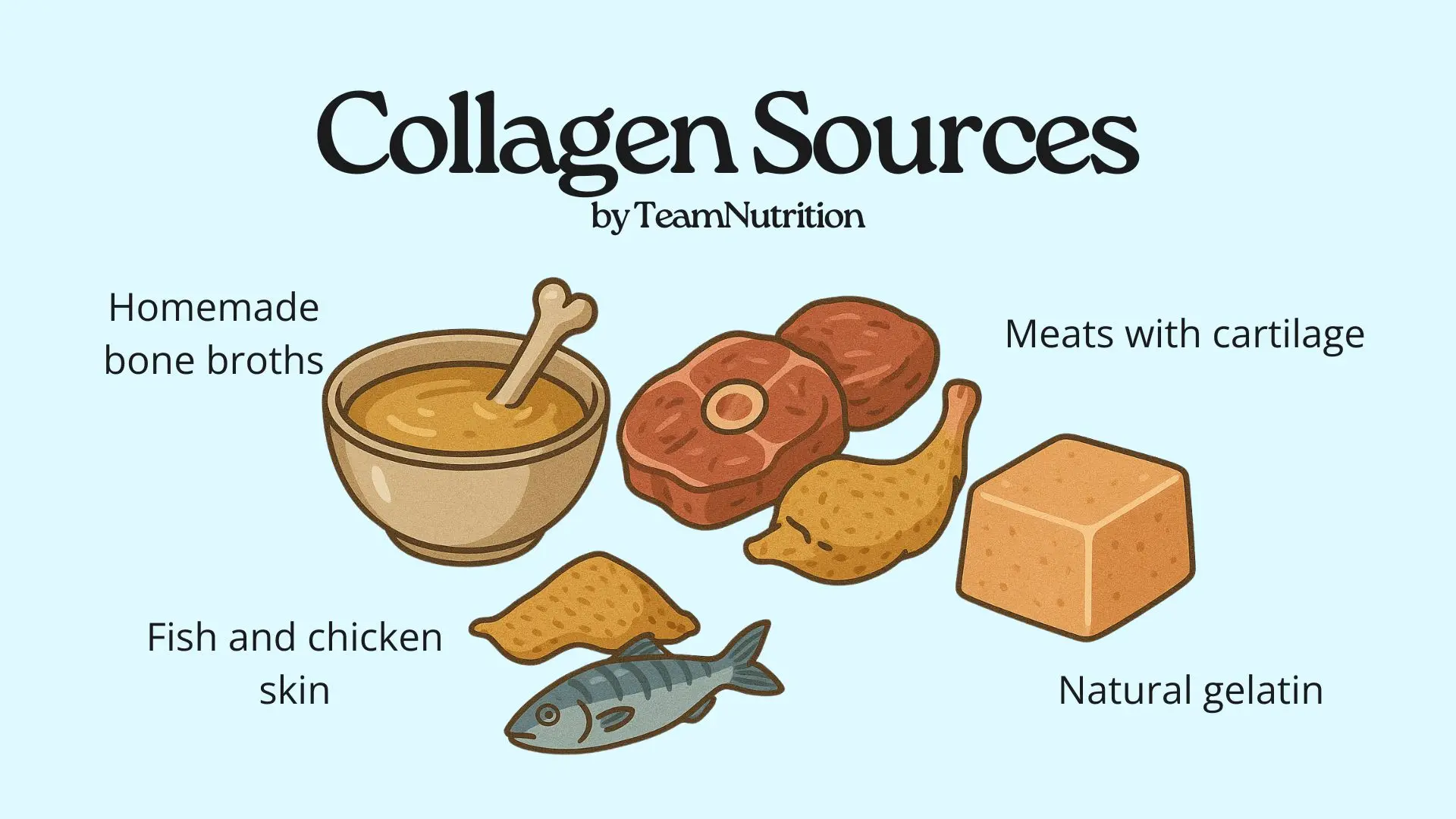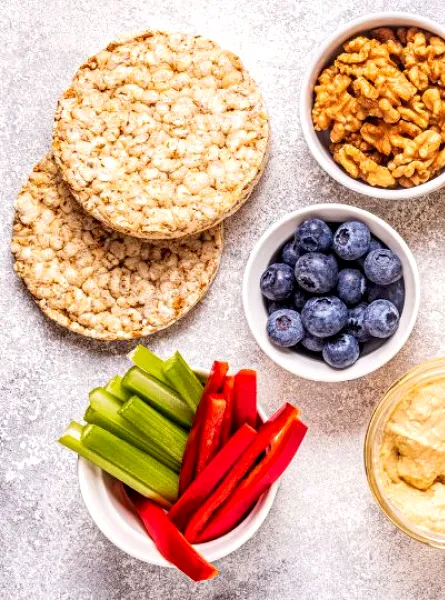
Collagen has become a star ingredient in health products, particularly in nutritional supplements. But before you add a supplement to your daily routine, it’s worth knowing whether your body truly needs it—or if a well-planned diet can already do the job.
In this article, we break down what the science really says about collagen supplementation. You’ll see:
- What Is Collagen?
- What Are the Signs of Collagen Deficiency?
- Do You Really Need a Collagen Supplement?
- Where Is Collagen Found Naturally?
- How to Boost Your Collagen Levels?
- What Are the Benefits of Collagen Supplementation?
- Which Collagen Supplement Is Best?
- Final Word: Do You Really Need Collagen?
1. What Is Collagen?
Collagen is the most abundant protein in the human body. It acts like a natural glue, providing structure and strength to skin, bones, tendons, ligaments, and even hair.
2. What Are the Signs of Collagen Deficiency?
Starting in your thirties, collagen production gradually slows. This decline can show up as:
- Less firm skin
- Joint pain
- Loss of muscle tone
Faced with these signs, it can be tempting to turn to a collagen supplement. But before you do, it’s best to ask whether it’s really necessary in your case.
3. Do You Really Need a Collagen Supplement?
In fact, your body already makes collagen naturally—provided it has the right building blocks. Before turning to supplements, optimise what’s on your plate!
To support collagen production despite the natural age-related slowdown, focus on both collagen-rich foods and those that help your body produce it.
4. Where Is Collagen Found Naturally?

Collagen is mainly found in animal foods rich in connective tissues. Key sources include:
- Homemade bone broths (note: collagen content varies by cooking method)
- Meats with cartilage: shanks, chicken wings, oxtail
- Fish and chicken skin
- Natural gelatin: used in some homemade desserts
Note:
Although these foods contain collagen, they provide variable—and sometimes insufficient—amounts of key amino acids. They’re worth including in a varied diet, but may not always meet high needs (e.g., joint health, muscle recovery, anti-ageing).
5. How to Boost Your Collagen Levels?
Here are the essential nutrients to include in your diet to support natural collagen production:
- Vitamin C → Citrus fruits, strawberries, peppers, broccoli
- Zinc & copper → Nuts, seeds, shellfish
- Complete proteins → Eggs, fish, tofu, meat, poultry
Tip: Add a squeeze of lemon or lime to your protein-rich meals—vitamin C naturally boosts collagen synthesis.
For personalised advice, book a consultation with a dietitian nutritionist. They can help you determine what works best for your situation.
6. What Are the Benefits of Collagen Supplementation?
These profiles seem to benefit most from collagen supplements, along with observed effects:
Individuals aged 35 and over
- Potential benefits:
- More hydrated, supple skin
- Reduced dryness and loss of elasticity
- Suggested dosage: 2.5–10 g/day for 8 weeks
People with joint pain or osteoarthritis
- Potential benefits:
- Reduced joint pain
- Better recovery after exercise
- Suggested dosage: 5–10 g/day for 6 weeks
Post-menopausal women
- Potential benefits:
- Maintenance of bone density and osteoporosis prevention
- Slight increase in muscle mass and strength
- Suggested dosage: 15 g/day for 8–12 weeks + exercise
Older adults or those with muscle loss
- Potential benefits:
- Slight increase in muscle mass and strength
- Support in sarcopenia or rehabilitation
- Improved recovery after injury or immobilisation
- Suggested dosage: 15 g/day for 8–12 weeks + exercise
Regular athletes (prevention & recovery)
- Potential benefits:
- Reduced training-related joint pain
- Support for connective tissues (tendons, ligaments)
- Improved muscle recovery post-effort
- Suggested dosage: 15 g/day, preferably before exercise
Note: Collagen is less effective than complete proteins for muscle building because it’s low in leucine. To optimise results, combine it with high-quality proteins (eggs, chicken, tofu…).
7. Which Collagen Supplement Is Best?
Each type has unique features and suits different needs. Here’s an overview to help you choose:
|
Type |
Main feature |
Recommended use |
|
Hydrolysed collagen |
Easy absorption and good tolerance |
Skin, joints, muscles (general support) |
|
Collagen peptides |
More targeted and faster effects |
Skin, joints, muscles (general support) |
|
Collagen tripeptides |
Ultra-absorbable, rapid action |
Skin and joints |
|
Undenatured type II collagen |
Intact structure, works via the immune system and on joint wear |
Osteoarthritis and joint pain |
👉 The choice depends on your needs. Meet a dietitian online or in person to find the form that suits you best.
8. Final Word: Do You Really Need Collagen?
Taking collagen as a supplement can offer real benefits, but it’s not a miracle cure. When chosen wisely and integrated into a balanced diet, a collagen supplement can support the health of skin, joints, muscles, and bones.
Undecided between diet, supplements, or both? Book a consultation with a registered dietitian nutritionist!
They can help you:
- Assess your real needs
- Choose the right type and dose of collagen
- Incorporate more natural sources into your meals
It’s the best starting point for lasting results!





